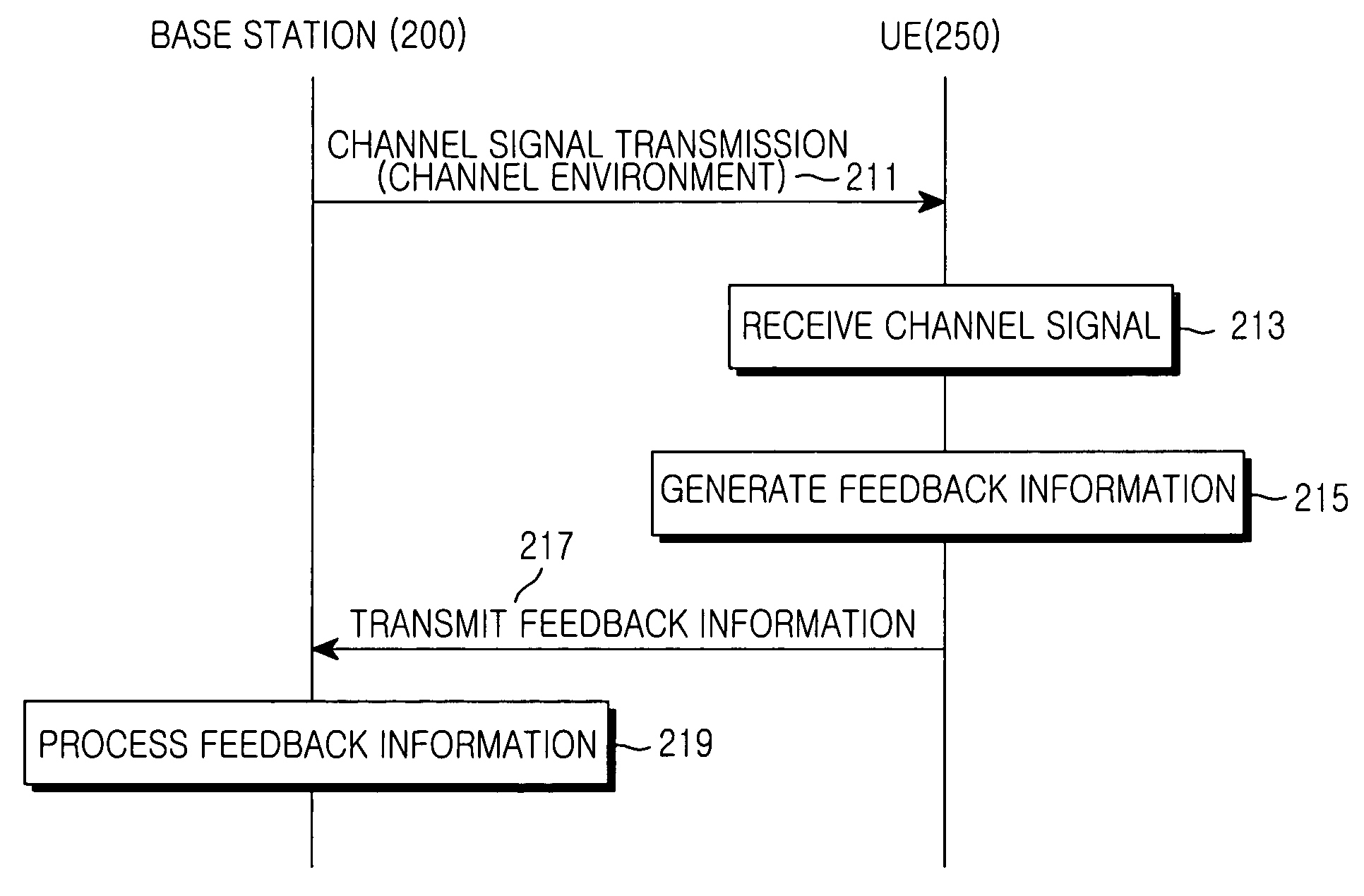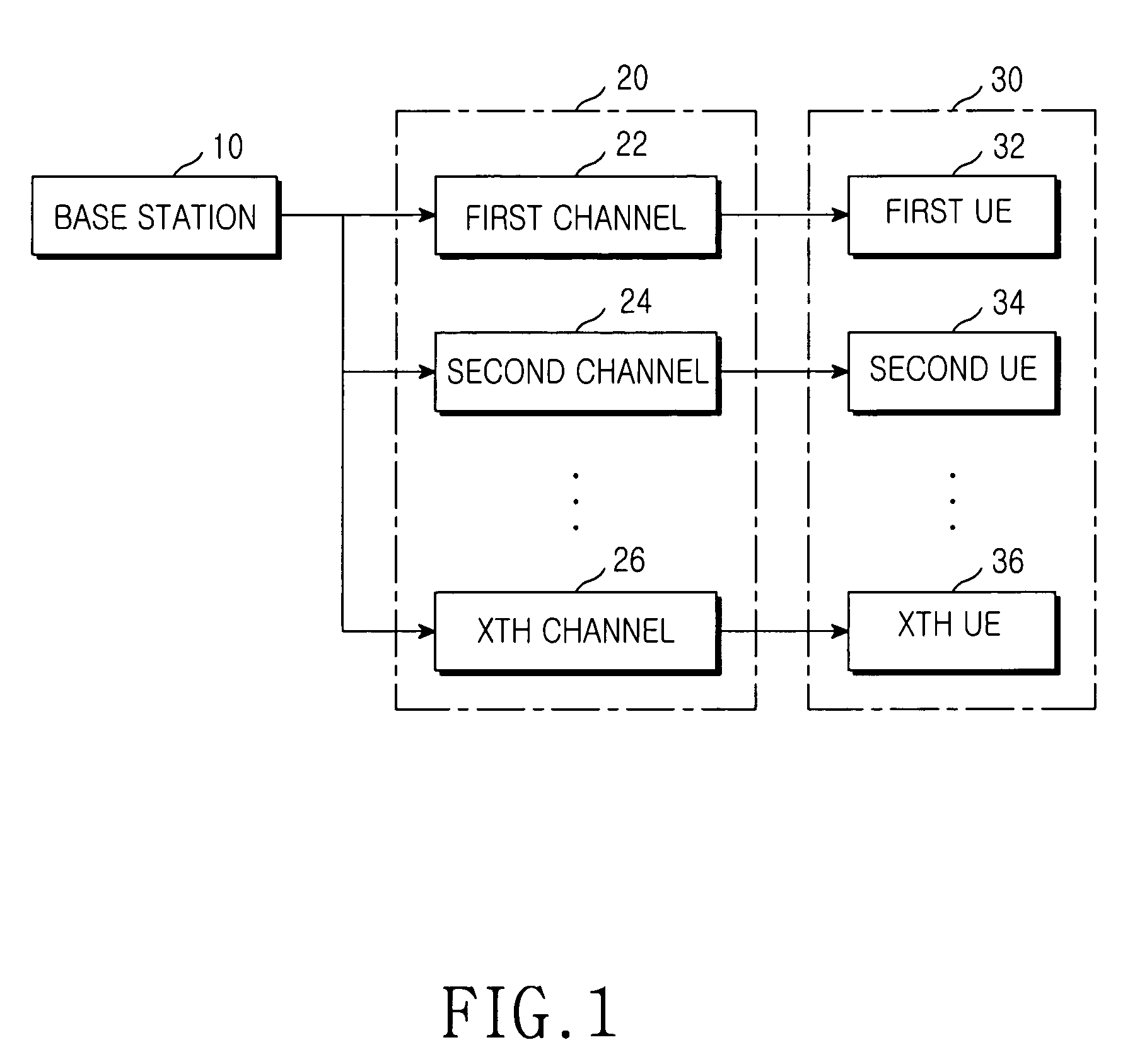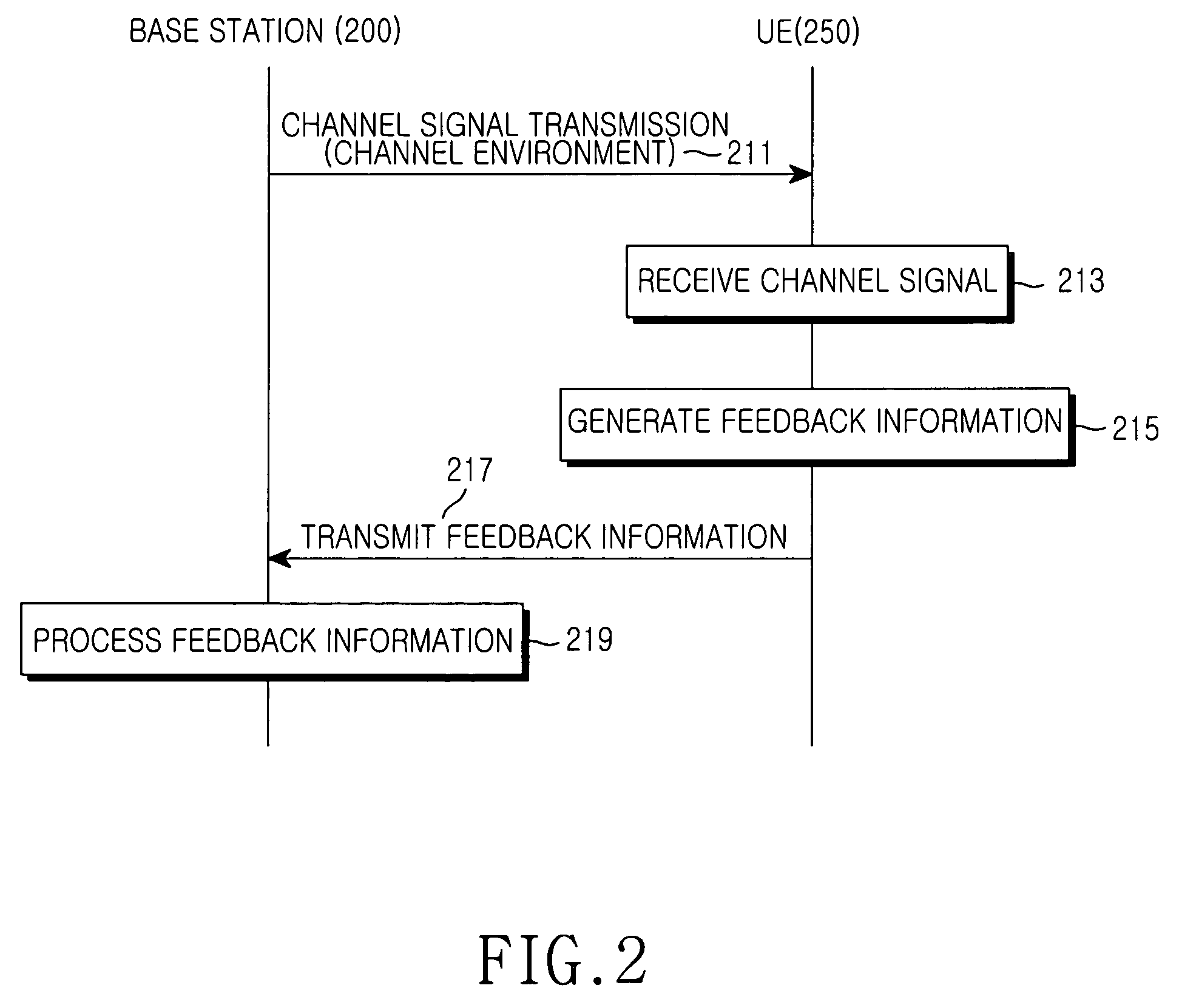Device and method for transmitting and receiving data by a transmit diversity scheme using multiple antennas in a mobile communication system
a mobile communication system and diversity scheme technology, applied in the field of mobile communication systems, can solve the problems of affecting the performance interrupting high-speed data communication, and affecting the reception of signals, so as to maximize the transmission capacity of the mobile communication system
- Summary
- Abstract
- Description
- Claims
- Application Information
AI Technical Summary
Benefits of technology
Problems solved by technology
Method used
Image
Examples
Embodiment Construction
[0048]Hereinafter, an embodiment of the present invention will be described with reference to the accompanying drawings. In the following description of the present invention, a detailed description of known functions and configurations incorporated has been omitted for conciseness.
[0049]FIG. 1 is a block diagram illustrating an example of a packet communication system according an embodiment of the present invention.
[0050]Referring to FIG. 1, a base station (Node B) 10 is a system for supporting packet services, for example, a system using a high speed downlink packet access (“HSDPA”) technique for performing large data transmission. A first user equipment (UE) 32 to an Xth user equipment (UE) 36 are connected to the base station 10 by a wireless network to receive packet services. The base station 10 uses a transmit antenna diversity scheme which belongs to a multiple antenna diversity scheme. More particularly, the base station 10 uses a transmit antenna array (“TxAA”) of the tra...
PUM
 Login to View More
Login to View More Abstract
Description
Claims
Application Information
 Login to View More
Login to View More - R&D
- Intellectual Property
- Life Sciences
- Materials
- Tech Scout
- Unparalleled Data Quality
- Higher Quality Content
- 60% Fewer Hallucinations
Browse by: Latest US Patents, China's latest patents, Technical Efficacy Thesaurus, Application Domain, Technology Topic, Popular Technical Reports.
© 2025 PatSnap. All rights reserved.Legal|Privacy policy|Modern Slavery Act Transparency Statement|Sitemap|About US| Contact US: help@patsnap.com



